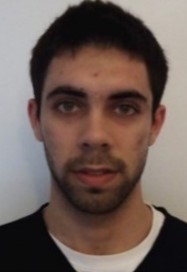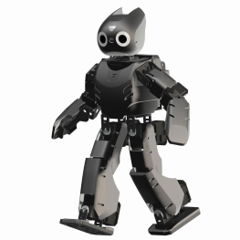Adaptive Legged Locomotion
João André (PhD Student)
The goal of this Ph.D. work is to adapt robot movement autonomously and in real time to deal with unknown/unforeseen scenarios. This is achieved by gradually building a library of skill “memories” that associates specific sensor data to specific control parameters, thus codifying every successful situation the robot has “experienced”.
Then, when faced/placed in a new unknown scenario, the robot extrapolates a potential functional solution by generalizing from its skill library (using perceptual information to identify closest “memories”).
This work adopts concepts from rather distinct scientific fields. Locomotion generation is based on already-established bio-inspired parametrized policy representations e.g. Central Pattern Generators (CPGs), Dynamic Movement Primitives (DMPs), Muscle Synergies, etc. that have been shown to simply joint trajectory generation. On the other hand, learning & optimization is based on reinforcement learning, a branch of machine learning, that iteratively maximizes a reward function. Each action/command taken by the robot results in a reward that quantifies its utility to the task.


